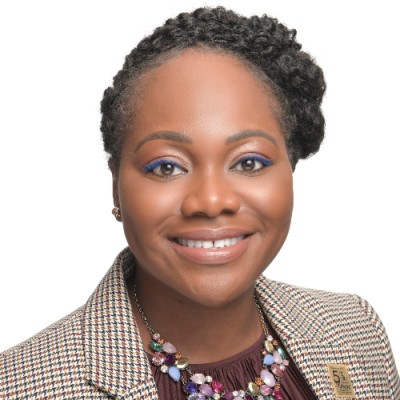The first time that Jaynitsa Paul had her interest in accounting piqued was when she was nine years old and she would watch her aunt count money as church treasurer.
Indeed, Paul said she entered the profession with a fearless approach to her career. As a result, she’s worked at Deloitte in four offices on two continents and in two different practice groups, audit and capital markets. Recently, she started a new role at Amazon.
‘Try it… and if it doesn’t work out, just go back…’
Her fearless approach in career risk-taking has served her well, and Paul advises her Black colleagues, peers, and students to adopt this same mindset. “More often than not, we put ourselves in a bubble and don’t think we can do more, or that we shouldn’t go outside of our comfort zone,” Paul says, adding that she enjoys showing Black accountants that “you can do this — I have done it to serve as an example for you.”
In particular, Paul likes to highlight the opportunities that abound within the accounting profession and the growth that comes from career risk-taking. Without the capital markets experience and an in-depth understanding of the inner workings of a company that she acquired, Paul says she would have not discovered her newest interest in strategy and operations so early in her career.
Paul elaborates on what she is doing now to investigate her interest in consulting and advisory services and strategy and operations for accounting firms:
Analyzing your experience to create a narrative — Paul says she is “on a journey exploring the vast experience that I have and how to connect what I have done and what I’m currently doing to see where it aligns with strategic and operational leadership roles.” For example, Paul relates a story of how she had to work through and execute a contingency plan for a crisis when she was 17 days into her elected role as president of the Southern region of the National Association of Black Accountants (NABA). The host hotel of the region’s 450-student attendee conference cancelled their event (because of a bacterial outbreak) within two months of the live date. And this was while she was still working in London. “Thinking through that particular challenge and how I worked to strategize and resolve it by using critical thinking” is a key experience that Paul says she can use to explore different potential career pathways.

Tap your network — Paul is also reaching out to her peers, friends, and connections to learn about potential future career paths. Proactively connecting with individuals in her NABA network, her employer, and on LinkedIn is another part in her toolbox. “Tapping into my network and speaking up for what I want have been the two keys to navigating my career,” she explains. “And that’s really how I’ve been successful at being able to transition and maneuver between the various careers I’ve had within Deloitte.”
Guidance for tax & accounting employers
Representation of Black CPAs and accountants is very low within the profession, which is complicated further because the responsibility to increase that representation at the executive level typically falls on Black employees. However, it is not their responsibility to fix the organization and minimize these barriers to advancement. Instead, it is the duty of the employer — the organization, every C-level executive, every director, manager, and individual contributor — to eliminate the structural impediments Black CPAs and accountants may experience and create a culture where they can advance.
Teach middle managers how to engage across differences — “What typically causes Black CPAs and accountants to leave the profession or to leave a company is a lack of connection and support from their direct supervisor at the middle-manager level,” Paul says, adding that although there is a significant focus on diversity and inclusion right now and top-level leadership may voice it, often that message gets stalled at the lower-levels of management. Middle managers’ skill sets and know-how in engaging team members who are different from them is poor, and there hasn’t been an emphasis on diversity, inclusion, and belonging in middle-manager training.
Increase visibility of executives of color — A big factor in attracting, recruiting, and retaining Black CPAs and accountants within an organization is their ability to “see themselves reflected in leadership.” Seeing an executive who looks like them helps Black CPAs and accountants envision an advancement path and have a true sense of belonging. “If you don’t see any Black partners or any Black senior managers or any black managers, you start to question, ‘Do they want to promote me to that level? Will I make it there? Does that type of ethnic diversity matter?’” Also, engaging executives of color to connect with the lower-level Black CPAs and accountants can drive the culture shift and emphasize the importance of ethnic diversity that is so desperately needed within the accounting profession.
Center Black voices around promotions and evaluations to de-bias performance evaluation systems — It is no secret that everyone has biases, most of which exist unconsciously; however, Paul says employers should analyze where the majority of their Black vs. non-Black employees fall within the range of performance — exceeds expectations, meets expectations, partially meets expectations, etc. Then, employers should assess where clusters of Black employees are, to identify if there is a visible bias. Also, partner with Black employee resource groups — like the NABA — to collect feedback on how they feel about the employer’s performance assessment tools to determine whether they see bias and can suggest any needed adjustments. In addition, evaluate all that each employee is contributing to the organization — too often, Black employees are more engaged in other initiatives within the organization, which should be considered favorably in their overall evaluation and promotion, rather than ignored or seen as a strike against them.







